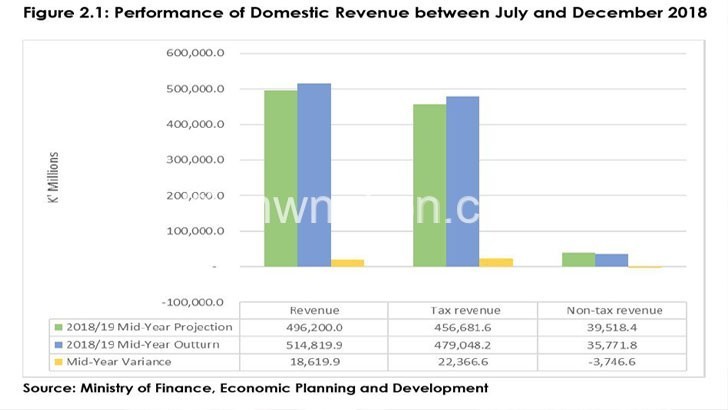Expert decries low non-tax revenue
The declining trend in non-tax revenue is a reflection that the country’s economic landscape remains volatile, a Blantyre-based tax analyst has said.
Tax analyst Emmanuel Kaluluma, who is senior tax consultant at EK Tax Consultants, said this in reaction to an analysis by the World Bank report which shows that non-tax revenue as a percentage of gross domestic product (GDP) has been dwindling since 2016/17 fiscal year.

The analysis shows that non-tax revenue as a percentage of GDP was at 2.4 percent in the 2016/17 fiscal year before declining to 2.2 percent in 2017/18 fiscal year.
The trend further worsened as non-tax revenue dipped further to 1.9 percent of GDP in 2018/19 fiscal year, based on revised estimates.
However, while non-tax revenue, collected from other sources other than taxes, has been on the downward spiral, tax revenue has over the same period sustained a strong performance, averaging 17.5 percent of GDP between 2016/17 and 2018/19 fiscal years.
Tax and non-tax review from domestic revenue which finances all government operations to ensure the delivery of public goods and services in addition to grants from various development partners in form of budget support, grants, dedicated grants and project grants.
Reacting to the trend, Kaluluma, who has previously worked as commissioner of tax at Malawi Revenue Authority (MRA), said in an interview that declining non-tax revenue collection confirms that the economic situation is still hostile, adding that the situation could also signal inefficiencies on the part of government ministries, departments and agencies (MDAs) tasked with the responsibility of collecting non-tax revenue.
He said: “In these circumstances, we have been good at enforcing our own laws and added to that, there is also corruption within our systems and all these lead to inefficiencies in the way such tax component is collected.”
Kaluluma also said worsening the situation is insufficient power supply which has affected MRA to collect more revenue in form of tax from various companies operating below capacity and have resorted to exorbitant diesel-powered generators.
On Tuesday in Lilongwe, as part of their input into the 2019/20 National Budget, Malawi Economic Justice Network (Mejn) proposed to government to ensure automating the collection of fees at local level or district councils to boost non-tax revenue collection.
Mejn executive director Grace Kumchulesi suggested the collection of vehicle parking fees and market fees which she said could be automated before government thinks of revising them upwards.
In the 2018/19 budget, Treasury faced mounting pressure, with increases in domestic revenues being outweighed by expenditure overruns.
At the end of the fiscal year, domestic revenues were projected to stand at 19.8 percent of GDP from 19.7 percent of GDP.





